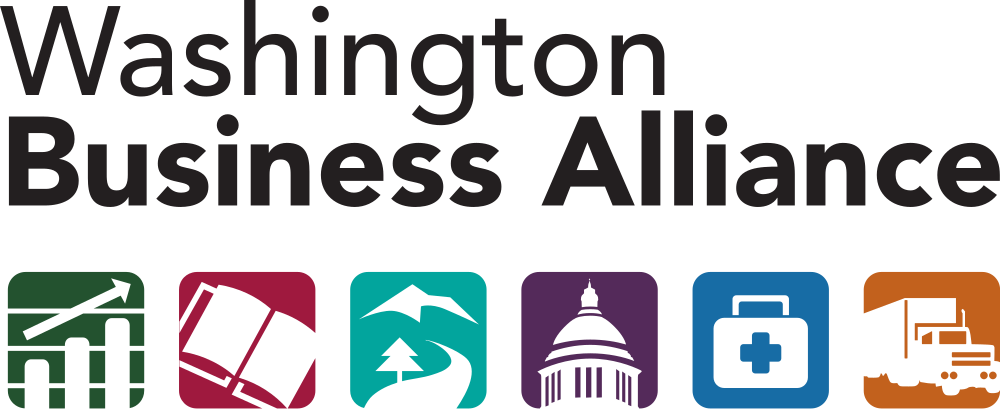You can directly impact Washington’s open data policy by filling out this short survey
Washington State is lagging behind when it comes to open data. The impact and use of open data (for citizens, businesses, and government agencies) is poorly documented and the state’s current policy is out-of-date. Currently, Washington’s open data is housed in six different online platforms and policy dates back to 1995.
Washington Business Alliance has partnered with the Office of the Chief Information Officer to assess the utility and impact of open data in Washington State. The goal is to strategically build upon existing open data policy using a demand-driven approach: prioritizing the publication of datasets based on demand from individuals and businesses.
Open data is a term that gets tossed around a lot. It generally refers to data produced by government agencies. Here are some key features of open data, according to Open Knowledge
- Availability and Access: the data must be available as a whole, preferably by downloading over the internet. The data must also be available in a machine-readable and modifiable form.
- Re-use and Redistribution: the data must be provided under terms that permit re-use and redistribution including the intermixing with other datasets.
- Universal Participation: everyone must be able to use, re-use and redistribute the data. For example, restrictions preventing ‘commercial’ use, or restrictions of use for certain purposes (e.g. only in education), are not allowed.
A wave of open data policies have come into existence over the last decade, with cities leading the way. Their efforts provide policymakers with a glimpse into what is possible with open data sets, and a long list of Dos and Don’ts. The proliferation of open data policies provides ample public feedback and best practices Washington to incorporate into its open data strategy, but the state needs a public feedback process of its own in order to hone its open data strategy.
The availability of data is unprecedented, due to advances in computational power. When it is properly formatted and available, it can be used by average citizens, civic hackers, companies, and government agencies themselves. Availability and usage of datasets has the potential to impact government transparency, service delivery and decision making by government agencies and policymakers, GDP growth, and new business formation.
 Open Data’s Impact on Government Performance
Open Data’s Impact on Government Performance
The open data movement grew out of a desire for improved government transparency. In addition to new levels of openness, open data delivers value to the public through better service delivery, data-driven policy and newfound efficiency.
The success of open data efforts across the globe has shown that huge strides in government performance can be achieved with the publication of just a few datasets. As Washington moves forward with open data in the midst of budget constraints, understanding which datasets generate the largest impact is paramount.
Government Users
It may come as a surprise that government itself is one of the primary users of open data. For example, when the government of British Columbia (a leader in open data) launched an open data portal, around one third of the site visits came from within government itself.
Public employees and lawmakers can have just as much difficulty gaining access to the data from outside their agency or jurisdiction as a regular citizen. This is because agencies and jurisdictions use individualized IT systems and data is often locked up in departmental silos.
Public Records
One of the biggest benefits open data has for government is time and money saved on public records requests. Luckily, a few key datasets can generate huge savings.
Take this example: A study analyzing New York’s State Department of Environmental Conservation’s 2013 FOIL requests revealed that 50 percent were attributed to only six data sets. In other words, the publication of just six datasets would have reduced the agency’s request workload by roughly 50 percent.
Some governments are already taking this step and showing the way forward. Open data policies like the ones in South Bend, Illinois and Louisville, Kentucky directly reference public records. Public records laws can also be updated to embrace the new standard of proactive rather than reactive disclosure, as is the case in Alaska.
 Service Delivery
Service Delivery
Open data is a part of a trend to move more public services online or through apps. Using data as the foundation for service delivery has the potential to increase effectiveness or change the way service is delivered all together. The best examples of this are in public transit, where the publication of real time data helps riders better navigate transit systems.
The release of transit APIs also showcases another trend in open data. Although some cities began by making their own apps to improve service delivery, the role of government is being fine-tuned as a steward of open data. That’s because open data has become a service in and of itself, with its proper provision laying the groundwork for entrepreneurs and businesses to make apps for citizens consuming government services.
What’s Next?
If publicized, open data can deliver enormous value to the public sector in terms of increased efficiency in the public sector. Starting with datasets that deliver the most value is key.
